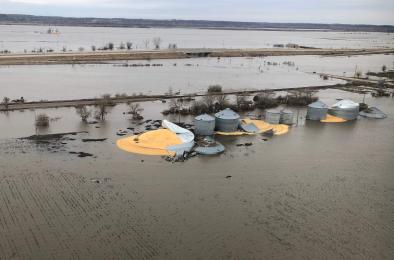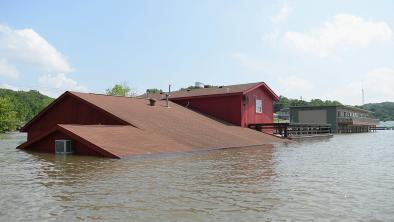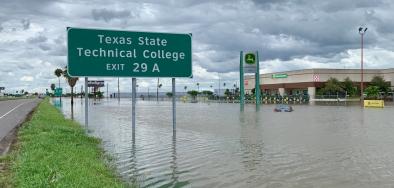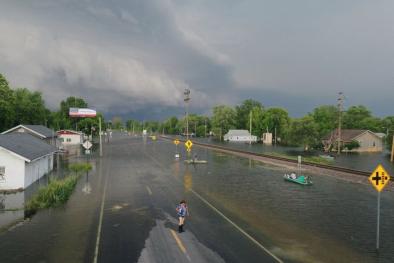A Wet Year Causes Farm Woes Far Beyond the Floodplains
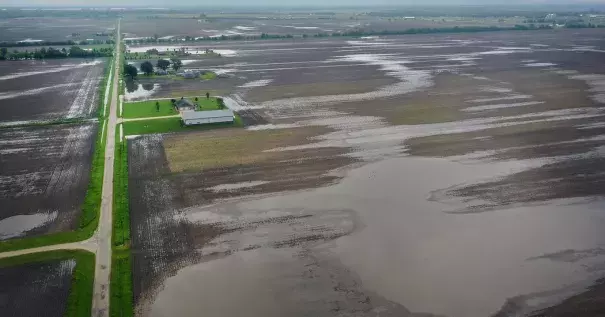
The damage from the destructive spring flooding in the Midwest has been followed in parts of the country by a miserable autumn that is making a bad farming year worse, with effects that could be felt into next spring.
Even the widespread flooding in the spring was worse for many farmers than the images of sodden river towns would suggest, said Scott Irwin, an agricultural economist at the University of Illinois. While the images of overwhelmed levees were dramatic, “that’s not the real story.” Across much of the Midwest and Northern Plains soils were saturated throughout the spring, he said, and many farmers couldn’t get crops in the ground or had to delay planting until perilously late in the season. “Farmers told me in Eastern Illinois it felt like they were in a monsoon from April til May.”
It was the wettest year on record for the lower 48 states, with the kind of extreme rainfall events that are increasingly associated with climate change. And then fall came in with unseasonably heavy rains and snow. That was the case for Aaron Heley Lehman, a farmer in central Iowa and president of the Iowa Farmer’s Union. “This has definitely been a bad year for almost all farmers in Iowa, even if you weren’t on river bottom ground and having your grain bins explode and your land underwater for weeks and weeks at a time,” he said. “It was still a very rough year.”
...
The intense downpours are characteristic of climate change, said Barbara Mayes Boustead, an author of the National Climate Assessment’s chapters on the Midwest and Northern Great Plains. While linking individual weather events is a complex and time-consuming process involving attribution science, the trends are clear, she said. “Climate change has changed the atmosphere itself,” Dr. Boustead said. So even if it is difficult to prove the precise impact of climate change on this year’s season, she added, “events like this become more likely as climate changes.”
Related Content
